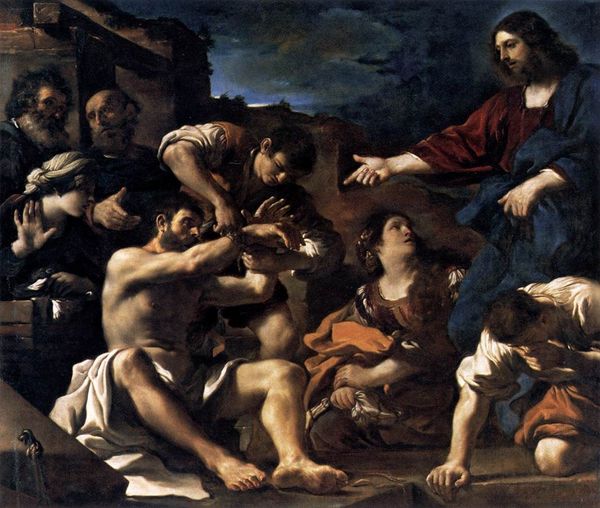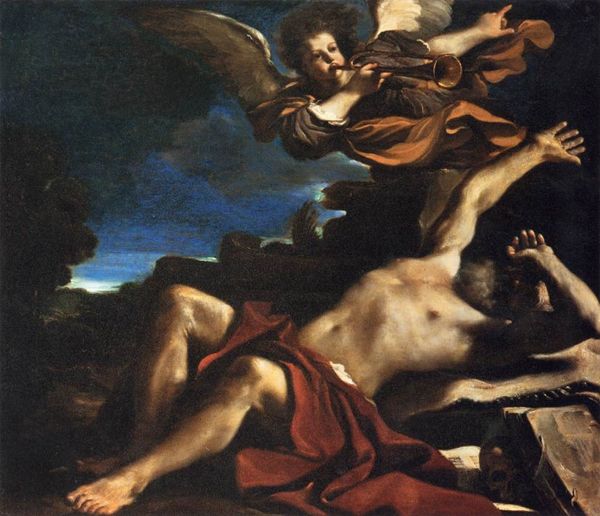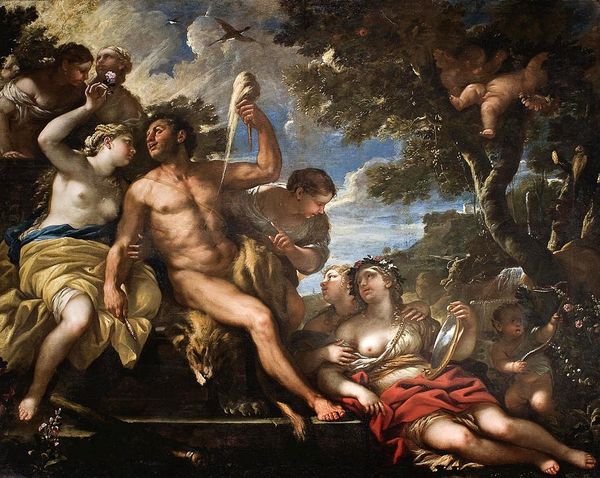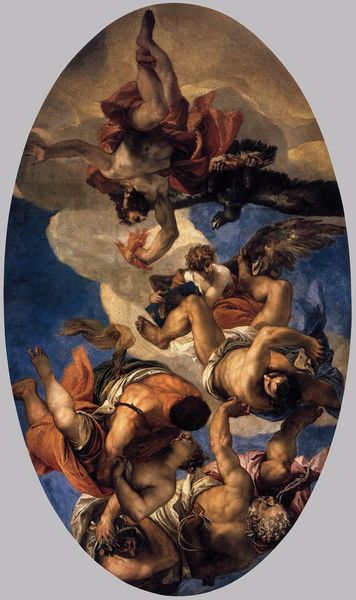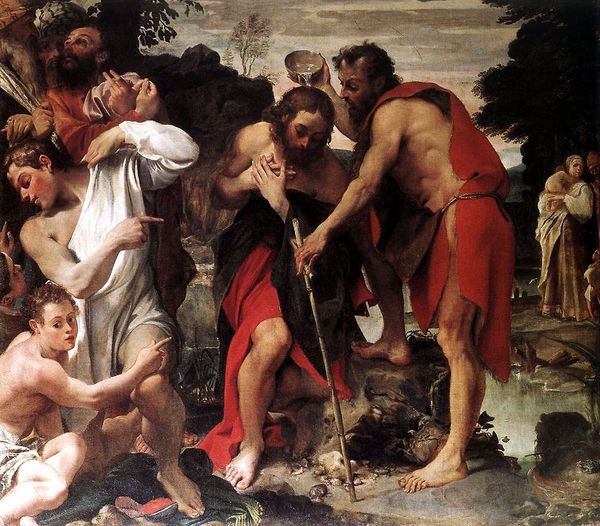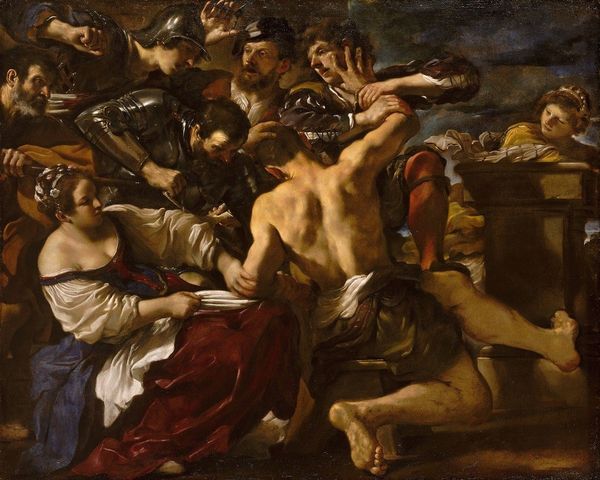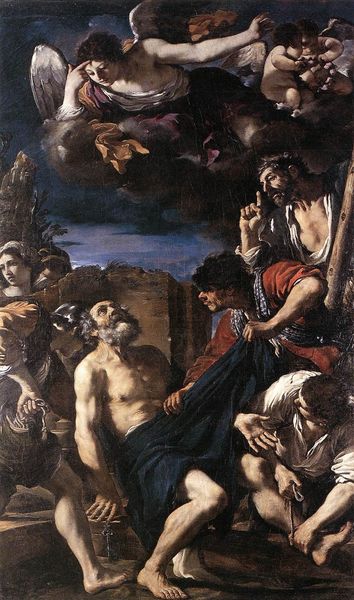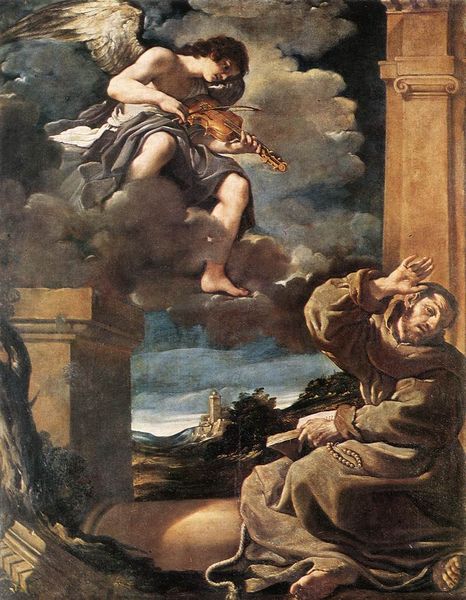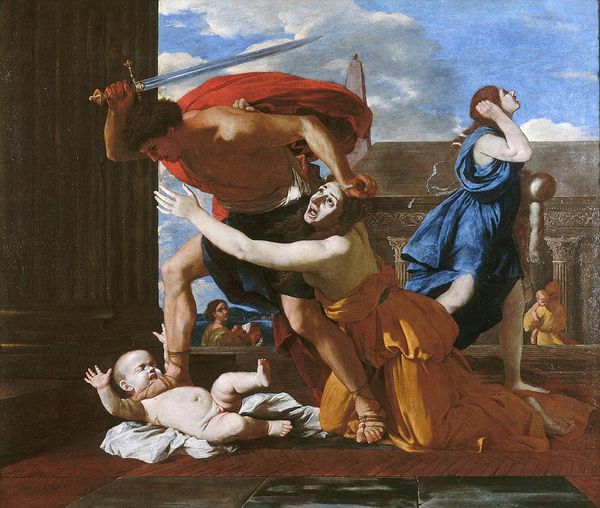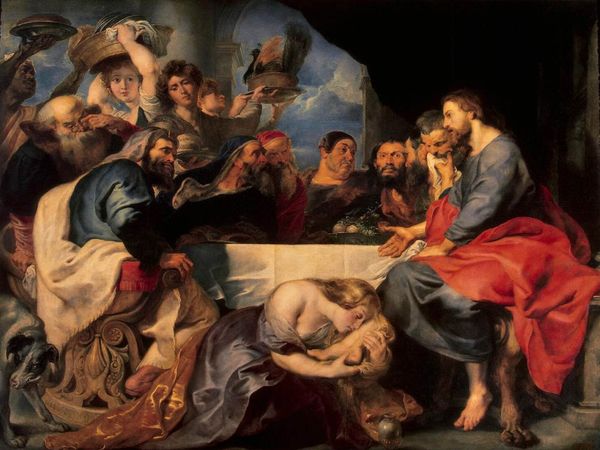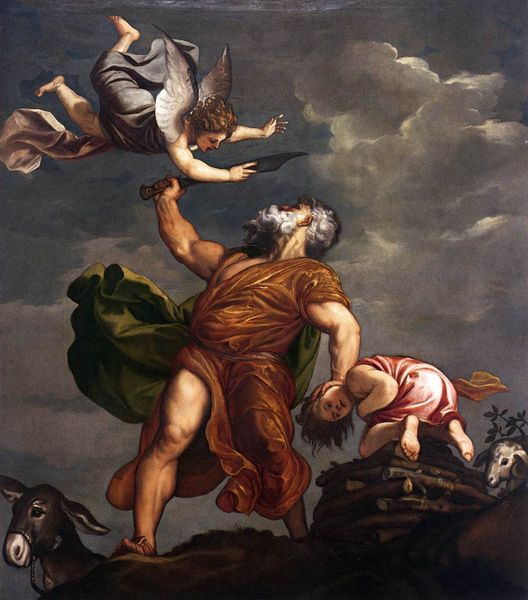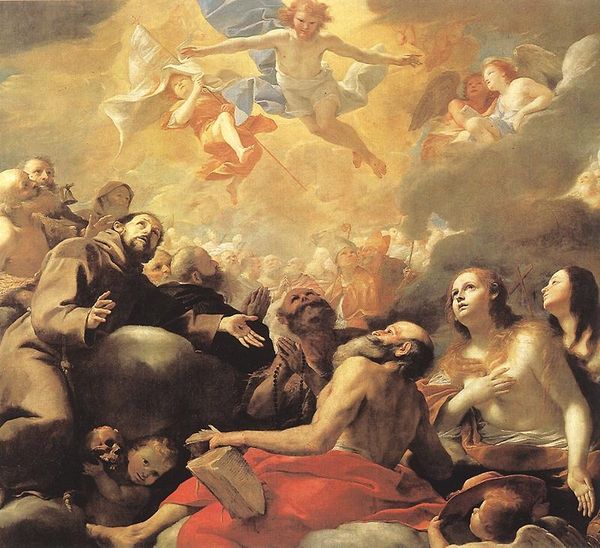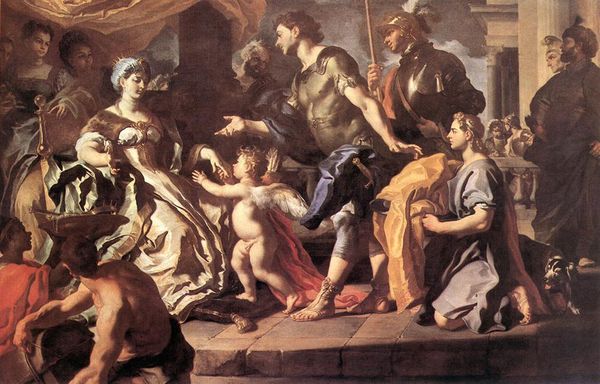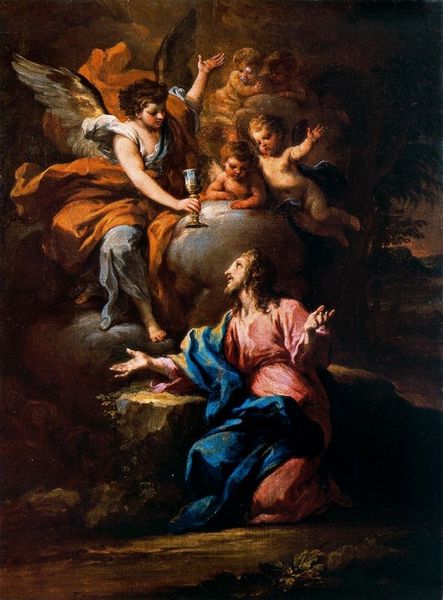
painting, oil-paint
#
portrait
#
narrative-art
#
baroque
#
painting
#
oil-paint
#
figuration
#
mythology
#
painting painterly
#
history-painting
#
italian-renaissance
Copyright: Public domain
Guercino painted ‘Erminia Finds the Wounded Tancred’ in Italy, likely in the 1600s. It shows a scene of compassion amidst the drama of battle, taken from the epic poem Jerusalem Delivered by Torquato Tasso. Guercino was working in a period when artists depended on wealthy patrons and institutions like the church for their livelihoods. Religious and mythological subjects were particularly popular as ways to display moral lessons. Guercino has used visual cues to create an emotional connection with the viewer, using the dramatic gestures and the contrasting light and shadow effects. The painting’s theatricality is very much in line with the sensibilities of the Baroque era. The painting uses Christian iconography, such as the compassion of Erminia, to imply the importance of empathy and forgiveness. Historians consider factors such as the artist's biography, social context, and patronage relationships to provide a richer and more nuanced understanding of works like this. By investigating these kinds of sources, we can get closer to the complex social and cultural context of the art itself.
Comments
No comments
Be the first to comment and join the conversation on the ultimate creative platform.
